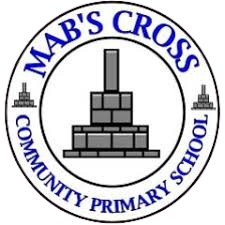Religious Education
MAB’S CROSS PRIMARY SCHOOL
RELIGIOUS EDUCATION CURRICULUM
INTENT
At Mab’s Cross Primary School, we believe that Religious Education contributes dynamically to our children’s education by equipping pupils with a knowledge and understanding of a range of religious and non-religious worldviews, enabling them to develop their ideas, values and identities. The aim of our curriculum is to ensure that our pupils have the knowledge they require to become responsible and active citizens, who have a clear understanding of our religious and cultural environment and the community in which they live.
Our RE curriculum develops in pupils an aptitude for dialogue so they can reflect on what it means to have faith and develop their own spiritual knowledge and understanding. We address thought-provoking and challenging questions about meaning and purpose in life, beliefs about God, ultimate reality, issues of right and wrong and what it means to be human. We enable children to develop a sound knowledge, not only of Christianity, but also of other religions and non-religious worldviews, especially those that are the main faiths of children within our school. We encourage children to develop an awareness of how other people within our society worship, celebrate festivals and live their lives in accordance with their religious beliefs and traditions. Our children are also provided with the opportunity to visit a range of places of worship. This prepares our children for life in modern Britain by enabling them to engage respectfully with others and develop the virtue of empathy.
Within the EYFS, Religious Education makes an active contribution to children reaching the Early Learning Goals in many areas of learning, but particularly for Understanding the World: People, Culture and Communities. We plan opportunities and experiences for children to learn about the similarities and differences between themselves and others. For example, sharing a wide range of stories from different cultures and religions and exploring the festivals of Diwali, Christmas, Eid al-Fitr and Easter.
Our long-term plan provides a broad and balanced curriculum that ensures cross-curricular links, whilst providing the children with the opportunity to develop their knowledge of our curriculum drivers. We offer cultural experiences that encourage children to embrace difference and diversity through exploring different festivals and traditions and receiving visitors from different faiths. We encourage our children to have high aspirations through our RE lessons and our carefully planned scheme for collective worship.
Our programme of study provides a spiral curriculum to develop knowledge, skills and attributes, where key elements are often revisited, reinforced and extended through the key stages. The knowledge organisers enable teachers to refer to previous learning and ensure that the children are able to make connections and build upon existing knowledge. Many of our RE sessions are practical and creative in nature and encourage children to develop skills that they will require in their future role in our society, including the values of respect, responsibility, liberty, perseverance, equality and aspiration. The curriculum also encourages children to investigate artefacts, interpret information, reflect and ask questions.
IMPLEMENTATION
At Mab’s Cross Primary School, we base our teaching and learning on the Wigan Agreed Syllabus, which follows the Lancashire Syllabus. It utilises an enquiry approach to explore the main religions and worldviews evident within our local community – Christianity, Islam, Judaism, Hindu Dharma, Sikhism and non-religious worldviews. Our RE curriculum does not seek to urge religious beliefs in pupils nor compromise the integrity of their own beliefs by promoting one religion over another.
Teachers have a good knowledge of the key themes within our RE curriculum, with teachers attending training on assessment, Islam, collective worship, the use of artefacts and engaging children in RE lessons. In addition, teachers share expertise and good practice through their weekly planning meetings. Our structured scheme of work is very detailed and clearly sets out expectations and curriculum coverage. This, alongside a subscription to RE Today, provides support and resources for teachers to ensure that all children are sufficiently challenged with their learning.
Our RE sessions are accessible to all, with the children in the class all undertaking the same unit. Through the implementation of Rosenshine's Principles, we remove any barriers to learning and maximise the outcomes for every child through scaffolding, cognitive support, carefully sequenced lessons, modelled activities, high quality first teaching and by introducing key vocabulary prior to the lesson for children with SEND.
Our assessment follows the whole school assessment policy and is supplemented by clear guidance from the assessment and key skills document to support teachers in making accurate and informed judgements. Throughout each unit, assessment for learning is utilised to inform our planning. This may be undertaken through observations, discussions with the children, analysis of work, questioning or specific assessment activities. A summative assessment task is undertaken at the end of each unit, which is used by the teachers to identify areas for further development at the end of a unit, with future plans being amended accordingly. In the EYFS, we continually assess children’s understanding through observations and interactions to ensure that focused tasks and activities are provided within the areas of provision.
Carefully planned cycles of monitoring are utilised to ensure high quality teaching and learning is being implemented within all classes in school. Monitoring is undertaken through scrutinising books, drop-in sessions and discussions with teachers, pupils and parents. It is undertaken by the RE and PSHE Team and supported by members of the SLT. Individual feedback is provided, with good practice identified alongside any areas for improvement. Appropriate support, such as team planning, is then put in place if required.
IMPACT
In our Religious Education sessions, we ensure that our pupils are prepared for the challenges of adult life by embedding the key skills they will require within our RE curriculum. Children will develop skills and character traits such as resilience, respect, empathy, co-operative work, investigation, interpretation, reflection and expression. Placing a focus upon these skills ensures that the children’s learning can be applied to a range of different religions and contexts.
